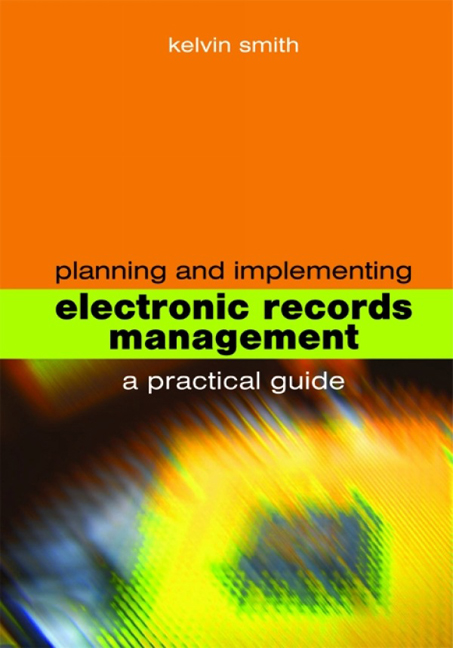15 - The future of information management
from Part 4 - The future
Published online by Cambridge University Press: 08 June 2018
Summary
Records and information management is going through a period of huge change, not least because of the challenges posed by electronic records. In a wider context we are living in a rapidly changing world where there are now over one billion users of the internet and over 60% of electronic access to information is from mobile devices. The paradox is that electronic information is essentially ephemeral and, if we are going to adapt to this changing environment, we need to think seriously about the sustainability of this information.
The creators of information are no longer records management professionals. There is a perceived lack of expertise in the field. The interest and developmental efforts are towards the technology rather than its product. We should not be surprised at that, but we must engage with the technical experts to ensure that the needs of both information management and information technology practitioners are met.
The traditional view of records and information managers is just that – traditional. Let's acknowledge that we are beginning to adapt, but more needs to be done. There are what many people like to call paradigm shifts in most aspects of the management of records and information. For example, the creation of information involves a greater understanding of metadata. This was unheard of in the paper environment when such data (we usually called it ‘documentation’) was taken for granted as part of the structure of registry and filing systems. There were file lists and (if you were lucky) disposal schedules which generally provided the metadata that you needed. Any extra was written on the file covers of records. Metadata in the electronic environment, however, requires considerably more thought and attention. There are different electronic systems so there will be different metadata schemes. This means different metadata standards and a constantly evolving field of information management. Another huge change is in the area of the retention of information. Appraisal methodologies have needed to be developed to cope with the electronic environment. For example, we no longer have the luxury of being able to undertake a (relatively) relaxed examination of records that are twenty years or so old, at which stage we feel more comfortable and confident in making a decision on historical value. Nor can we detach a judgement on historical value from one of business value. Both need to be made before the electronic record is obsolete.
- Type
- Chapter
- Information
- Planning and Implementing Electronic Records ManagementA practical guide, pp. 203 - 204Publisher: FacetPrint publication year: 2007



